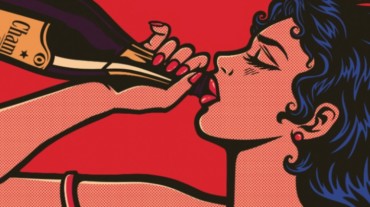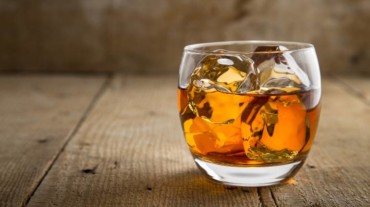
Having a drink every once in a while can be truly very relaxing. That said—if and when this drinking habit gets out hand, you could have hell to pay. But how can you tell whether you’re in control or not? Well, if American researchers are to be believed then the pleasure you derive from drinking can be a tell-tale sign.
A new study out of the University of Chicago Medicine following young adult drinkers for 10 years has found that individuals who reported the highest sensitivity to alcohol’s pleasurable and rewarding effects at the start of the trial were more likely to develop an alcohol use disorder (AUD) over the course of the study.
Moreover, when retested on their responses 10 years later, those who became alcoholics had the highest levels of alcohol stimulation, liking, and wanting—and these were heightened compared to their baseline with no signs of tolerance to these pleasurable effects.
The research, published in the American Journal of Psychiatry, followed a cohort of 190 young adults in a laboratory-based binge-drinking scenario at three regular intervals over the course of 10 years.

These results indicate that individuals developing an AUD are more likely to be sensitized to the effects of alcohol—that is, they experience a stronger positive response—rather than habituated to the substance with a lower level of response. In these same individuals, alcohol was less sedating for them from the beginning and this did not change over time.
“Prior longitudinal studies have looked at young drinkers’ response to alcohol and focused primarily on the fatiguing and impairing effects of alcohol,” said lead author Andrea King, PhD, professor of psychiatry and behavioural neuroscience at UChicago Medicine.
“The thinking that alcoholics do not like the effects of alcohol over time is based on ad-hoc reports of patients entering treatment. Only by testing the same people over a substantial amount of time to see if alcohol responses change over time were we able to observe this elevated response to alcohol compared with placebo, and in participants who did not know the contents of the drinks, so expectancy effects were minimized.”
The study showed that higher sensitivity to the euphoric and rewarding effects of alcohol can predict who will go on to have an AUD as they progress through their 20s and 30s.
“These pleasurable alcohol effects grow in intensity over time, and do not dissipate, in people progressing in excessive drinking,” said King.
“This tells us that having a higher sensitivity to the rewarding effects of alcohol in the brain puts such individuals at higher risk for developing an addiction. It all fits a picture of persistent pleasure-seeking that increases the likelihood of habitual excessive drinking over time. Alcoholics were thought to need to drink more to finally get their desired effect when they drink, but these well-controlled data do not support that contention. They get the desirable alcohol effect early in the drinking bout and that seems to fuel wanting more alcohol.”
Select Topics of your interest and let us customize your feed.
PERSONALISE NOWWhile it may seem relatively intuitive that individuals who experience alcohol’s pleasurable effects most intensely are at the greatest risk for developing drinking problems, King’s findings run counter to current prominent addiction theories.

“Our results support a theory called incentive-sensitization,” said King. “In response to a standard intoxicating dose of alcohol in the laboratory, ratings of wanting more alcohol increased substantially over the decade among the individuals who developed more severe AUD. Additionally, the hedonic response—essentially, how much a person liked the effects—remained elevated over this interval and didn’t go down at all. This has traditionally been the crux of the lore of addiction—that addicts don’t like the drug (alcohol) but can’t stop using it.”
The participants were regular light or heavy social drinkers in their mid-20s at the start of the trial from 2004 to 2006. They were brought back for repeated testing of alcohol responses in the laboratory five and 10 years later as they approached middle adulthood. In between testing periods, participants were interviewed at near-annual intervals to track their drinking patterns and symptoms of AUD over time.
Get Latest Updates on Health News